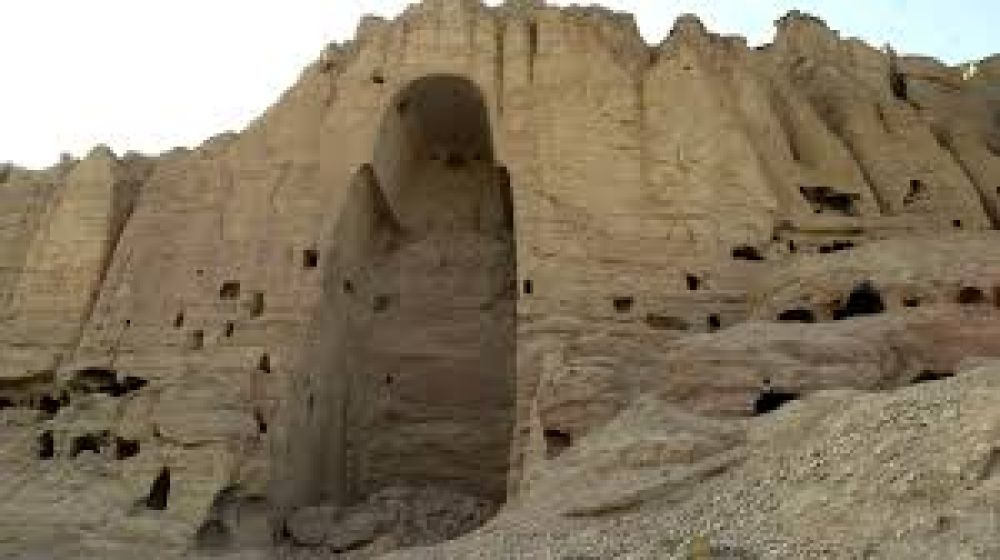The Buddhas of Bamiyan were monumental statues that stood in the Bamyan Valley of central Afghanistan. Carved into the side of a cliff, these colossal figures represented a blend of Gandhara art and Gupta influence, reflecting the region's historical position at the crossroads of trade and cultural exchange on the Silk Road. There were two main statues: one measuring 55 meters and the other 38 meters in height, making them some of the largest standing Buddha carvings in the world. These magnificent works of art were crafted in the 6th century and were hewn directly from the sandstone cliffs. In addition to the statues, there were numerous caves and niches surrounding them, which served as a monastic complex and contained frescoes and artifacts. Tragically, in March 2001, the Taliban, considering the figures idolatrous, destroyed the Buddhas using dynamite and artillery, causing global outrage and a significant loss to cultural heritage. Despite this, the site continues to attract scholarly attention and has been the focus of preservation and potential reconstruction efforts. It remains a poignant symbol of cultural diversity and the historical significance of the region.

Husnain1138
Wrote on 23rd Jun, 2023
Unfortunate that the status are broken, but still worth a visit
A heritage site in Kabul. There used to be two Buddah statues but it was destroyed by Talibans in 2001.
This site had huge potential but unfortunately it's destroyed. However it's still worth a visi..

